There could be changes in the program.
Download as a printer-friendly PDF here.
Mart Nutt, PhD, Member of Parliament, Host of the Conference
David Vseviov, Historian, philosopher and pedagogue, professor at the Estonian Academy of Arts
David Griffiths, Head of the Office of the Secretary General at Amnesty International
Vootele Hansen, Chairman of the Board, Institute of Human Rights
Technological development is creating many new and beneficial opportunities, but recent years have also demonstrated that technological advances can also have a downside. The rise of populism, internet hacking, fake news, cybercrime, terrorist groups that use social media for recruitment purposes – these are but a few examples of new, 21st century threats to fundamental rights. More >
Ivar Tallo, Founder and council member of the e-Governance Academy
Jeff Jarvis, Professor of journalism at the CUNY Graduate School of Journalism in New York
Mojca Pajnik, Associate Professor at the Faculty of Social Sciences, University of Ljubljana
Ivo Juurvee, Head of Security & Resilience Programme and Research Fellow at the International Centre for Defence and Security
Matti Saarelainen, Director of the European Centre of Excellence for Countering Hybrid Threats
Paul Przemyslaw Polanski, Associate Professor at Kozminski University
Europe’s bureaucratic and often project-based system is having trouble meeting the new challenges of today. We have been hit with a rise in populism and terrorism, extremist movements and the popularity of isolationist policies, a migration crisis and the closing of borders. A sense of security and protection are inevitable preconditions for the guarantee of human rights, but these can only be achieved through international agreements. More >
Katre Luhamaa, Lecturer at the University of Tartu
François Zimeray, France’s Ambassador to Denmark
Jacob Mchangama, Lawyer and human rights expert
Daniel Mitov, Former Minister of Foreign Affairs of Bulgaria
David Griffiths, Head of the Office of the Secretary General at Amnesty International
Nele Parrest, Justice of the Supreme Court of Estonia
Small states have a role in this world that large states do not always notice. Small states are flexible and can adapt faster to innovation and global change. This also holds true for human rights. In our rapidly changing world it is the small countries that are able to offer effective new solutions for the protection of human rights. More >
Heiko Pääbo, Director of the Centre for Baltic Studies at the University of Tartu
Kersti Kaljulaid, President of the Republic of Estonia
Chandra Roy-Henriksen, Chief of the Secretariat of the United Nations Permanent Forum on Indigenous Issues
Julian Burger, Visiting Professor at the University of Essex
Jonathan Cristol, A fellow at the World Policy Institute (WPI)
H.E. Kristina Miskowiak Beckvard, Danish Ambassador to Estonia
-
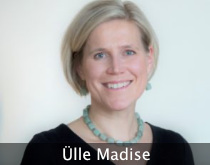 2019Parallel World Values and InterestsA clean environment and future of the globe, the possibility to preserve your privacy and option to disengage, which is necessary for the human psyche, are practical topics that apply to everyone.
2019Parallel World Values and InterestsA clean environment and future of the globe, the possibility to preserve your privacy and option to disengage, which is necessary for the human psyche, are practical topics that apply to everyone. -
 2018Conflicts of ValuesIn 2018, the panels discussed the topic of small countries as equal partners, whether human rights have a future, how much algorithms affect human rights and whether Russia has a future.
2018Conflicts of ValuesIn 2018, the panels discussed the topic of small countries as equal partners, whether human rights have a future, how much algorithms affect human rights and whether Russia has a future. -
 2017Are Human Rights in Freefall?The conference will address a number of today’s most important topics – terrorism, technological development, security, small states in a globalising world, culture and international cooperation – through a human rights perspective.
2017Are Human Rights in Freefall?The conference will address a number of today’s most important topics – terrorism, technological development, security, small states in a globalising world, culture and international cooperation – through a human rights perspective. -
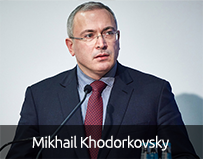 2016Black and White Values in a Polarizing WorldThe topics under discussion this year include a survey of public opinion on human rights among the Estonian citizens and foreigners living in Estonia, questions related to collective human rights and propaganda that have changed people’s understanding of basic rights.
2016Black and White Values in a Polarizing WorldThe topics under discussion this year include a survey of public opinion on human rights among the Estonian citizens and foreigners living in Estonia, questions related to collective human rights and propaganda that have changed people’s understanding of basic rights. -
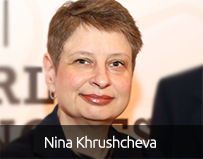 2015Human Rights in Changing TimesThe topics under discussion this year include case studies from the European Court of Human Rights, linguistic human rights, as well as the views of various generations of Russians today regarding their society.
2015Human Rights in Changing TimesThe topics under discussion this year include case studies from the European Court of Human Rights, linguistic human rights, as well as the views of various generations of Russians today regarding their society. -
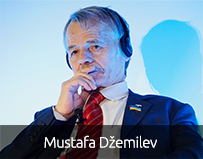 2014Dignity in the context of human rightsThis year the conference agenda included three keynotes and a panel discussion following each one: 1) guarantees under international law; 2) rights of native peoples; guarantees under international law; 3) the situation and future in Russia and Ukraine and human rights.
2014Dignity in the context of human rightsThis year the conference agenda included three keynotes and a panel discussion following each one: 1) guarantees under international law; 2) rights of native peoples; guarantees under international law; 3) the situation and future in Russia and Ukraine and human rights. -
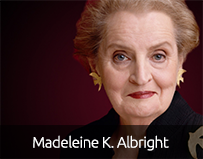 2013Human Rights and the Freedom to AssociationThis year’s annual conference, titled “Human Rights and the Freedom of Association” will analyse the global developments in human rights that have taken place in 2013.
2013Human Rights and the Freedom to AssociationThis year’s annual conference, titled “Human Rights and the Freedom of Association” will analyse the global developments in human rights that have taken place in 2013. -
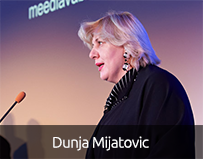 2012New Challenges of Human RightsOur conference examined human rights where the internet and the concept of security have altered dramatically our 20th century understanding of the core issues of human rights.
2012New Challenges of Human RightsOur conference examined human rights where the internet and the concept of security have altered dramatically our 20th century understanding of the core issues of human rights. -
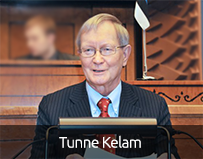 2011Dedicated to the 20th anniversary of restoration of independence of Estonia
2011Dedicated to the 20th anniversary of restoration of independence of Estonia


